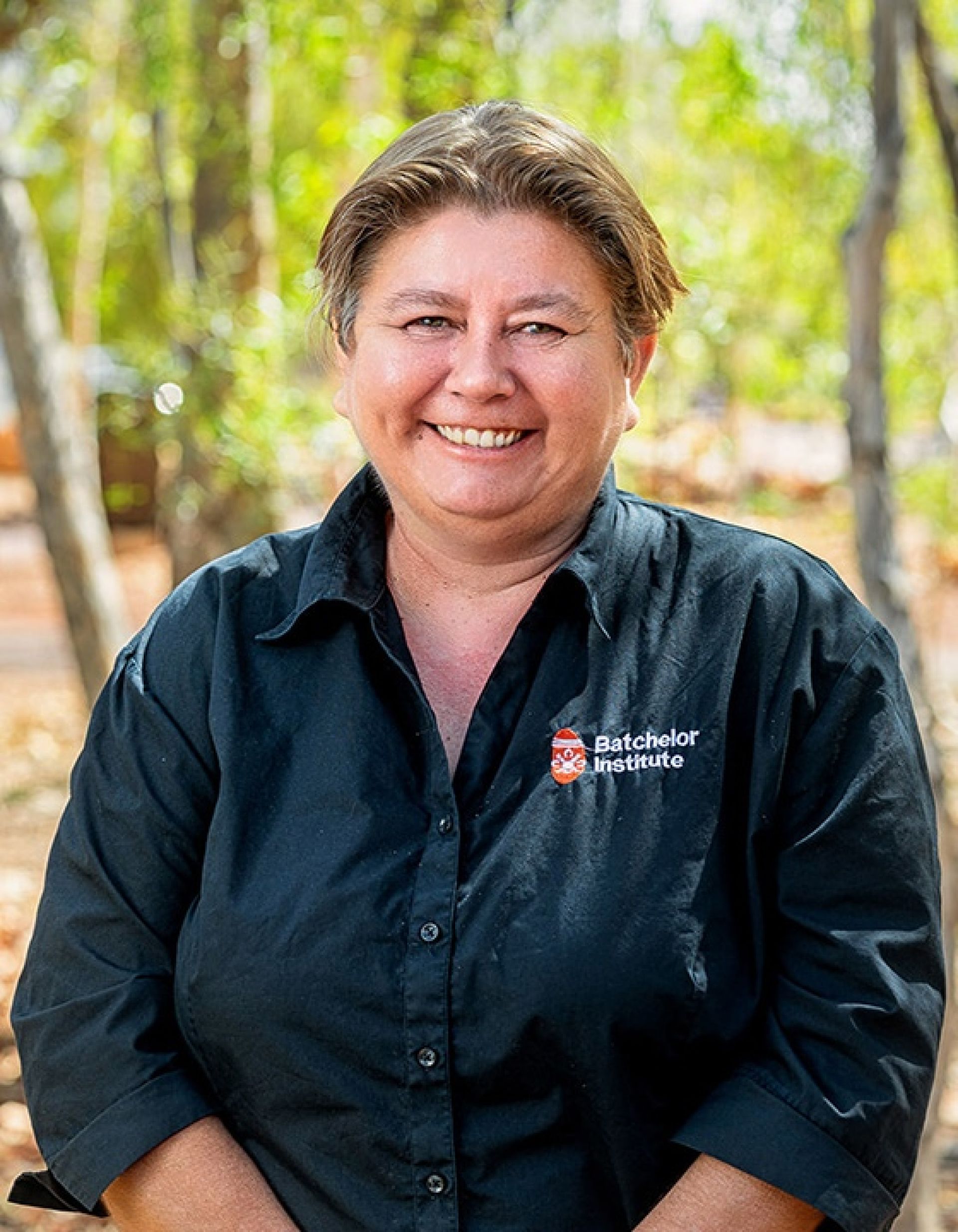
Professor Kathryn Gilbey is an Alyawarre woman with close kinship and family ties across Central Australia. Kathryn is the Executive Dean of Higher Education and Research at Batchelor Institute. She is an experienced academic and researcher with a track record as Chief Investigator with projects funded through the Australian Research Council Linkage and Discovery programs.
An important recent achievement was Kathryn’s appointment as a member of the inaugural Australian Research Council Indigenous Forum in 2024, elevating Indigenous voices and perspectives in the broader research community. Kathryn is a board member of the Australian Council of Deans and Directors of Creative Arts (DDCA), Indigenous Academic Representative on the World Indigenous Nations University (WINU) Executive and Board of Governors Committee, and Vice President Research of the National Aboriginal and Torres Strait Islander Higher Education Committee.
Kathryn was the Fulbright Cultural Competence Scholar in 2016, and her publication record since then demonstrates a significant contribution to social justice and change.

Examples of Kathryn’s work
Kathryn is the Australian Project Lead on the Lego funded international SPIRIT Project. The project is funded over 5 years from 2023-2028 for reclaiming Indigenous children’s futures through home-visiting and intergenerational playspaces.
Collaborating with: Johns Hopkins Centre of Indigenous Health (USA), University of Otago (NZ), First Nations Health Authority (Canada)
Website: https://familyspiritprogram.org/lego-spirit-project/
Prof Gilbey is Batchelor Chief Investigator on this ARC Linkage project administered by University of Tasmania which applies Indigenous knowledges to develop new understandings and insights in the area of Aboriginal and Torres Strait Islander girls’ education.
Collaborating with: University of Tasmania, Curtin University and Federation University
This recently completed ARC Discovery project led by University of the Sunshine Coast from 2021-2024 aimed to apply Indigenous knowledge approaches (agency of Country; power of stories and iterative, intergenerational and intercultural knowledge production) to Australian doctoral education.
Collaborating with: University of the Sunshine Coast, RMIT University, and Western Sydney University.
Prof Gilbey is Batchelor Institute Chief Investigator on the ARDC funded LDaCA project led by University of Queensland which aims to leverage existing infrastructure to secure vulnerable and dispersed language collections.
Website: https://www.ldaca.edu.au/
